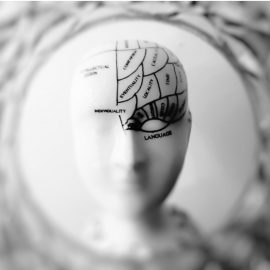

This article is an excerpt from the Shortform book guide to "The Charisma Myth" by Olivia Fox Cabane. Shortform has the world's best summaries and analyses of books you should be reading.
Like this article? Sign up for a free trial here .
Do you want to be more charismatic? What do nonverbal skills have to do with charisma?
When you think of charisma, you probably think of a person who has magnetic energy and who can captivate any listener. However, what you may not know is that one of the most important parts of being charismatic is actually being a good nonverbal communicator.
Here’s what Olivia Fox Cabane has to say about nonverbal communication in her book The Charisma Myth.
Master Nonverbal Communication
The first conversational skill to learn is nonverbal communication. As we’ve discussed, Cabane is adamant that others evaluate you based on body language more than anything else. Therefore, she urges you to make sure your body language conveys both authority and goodwill.
Cabane recommends that you move slowly and deliberately, like benevolent royalty. The fewer movements you make, the more confident, in control, and authoritative you’ll seem. Restless fidgeting makes you seem distracted and agitated.
(Shortform note: Researchers have corroborated Cabane’s claims that slow, deliberate body language conveys authority and goodwill. Moving slowly doesn’t just make you seem in control—it also gives you more time to think through your actions before responding, allowing you to make better decisions with greater confidence. In the same vein, here are some other nonverbal skills you can use to convey the right amount of authority and goodwill:
- Keep your head straight instead of tilting it to one side.
- Use “steepling,” the hand position that conveys the most confidence.
- Don’t point with a single finger, as this seems aggressive—gesture with your whole hand instead.)
According to Cabane, another habit that helps you nonverbally project goodwill is mirroring. By matching the actions, body language, and vocal patterns of your conversation partner, you subconsciously communicate familiarity and intimacy, earning the other person’s trust.
(Shortform note: Although Cabane never touches on this point, many writers warn about the dangers of being caught mirroring. If people notice you mirroring their body language, they may accuse you of trying to manipulate them. A good rule of thumb is to stick to movements that feel instinctively right—don’t force anything. Note that if you’re already feeling connected to your conversation partner, you may find yourself mirroring automatically. This is a less risky, more natural form of mirroring.)
Perhaps most importantly, maintain mindful eye contact. Many people feel uncomfortable staring into someone else’s eyes for an extended period of time, but Cabane asserts that by pushing through the discomfort, you can forge deep connections. That said, if your eye contact is too intense, it may come across as threatening. To avoid this, use a mirror to practice staring with a soft focus—relax your eyes to create a feeling of warmth.
(Shortform note: Cabane is right to claim that eye contact is a powerful way to connect with others. Even making eye contact with a painted portrait activates the social, empathetic parts of our brain. Although Cabane primarily warns against eye contact that’s too harsh, many argue that the bigger hazard is staring for too long. On average, people make eye contact for 7 to 10 seconds at a time in a one-on-one conversation and 3 to 5 seconds at a time in a group. Making more eye contact than that can easily come across as aggressive.)

———End of Preview———
Like what you just read? Read the rest of the world's best book summary and analysis of Olivia Fox Cabane's "The Charisma Myth" at Shortform .
Here's what you'll find in our full The Charisma Myth summary :
- How charisma is a set of habits and behaviors that anyone can learn
- How to become a magnetic presence wherever you go
- Why it’s more important to be a charismatic listener than a charismatic speaker






